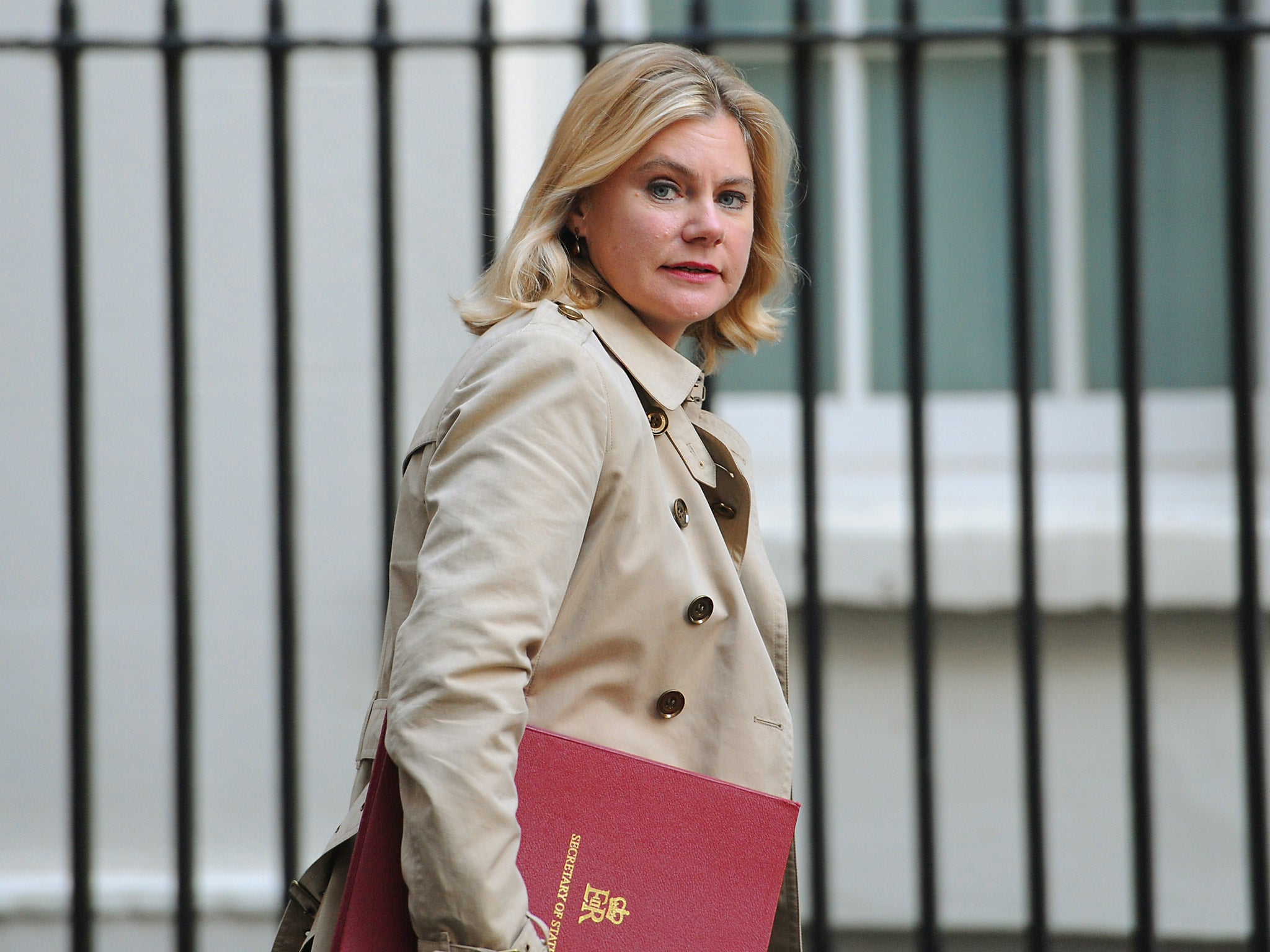As a working-class person who benefited hugely from grammar school, I hope more children are allowed that opportunity
The delusion that all children are of equal academic ability and can be taught in a one-method-fits all comprehensive system (if their parents can’t afford private education) has damaged thousands and thousands of young people and reinforced the class system that blights British society


Justine Greening wants new grammar schools to prioritise the bright children of families earning £33,000 with two children or £17,000 with one. Does that mean a two-tier selection process, with quotas and means tests on top of entrance exams? And if so, why is that a bad thing?
Back in the Fifties, I was the first person in my family to go to a grammar school. My parents were forced to go to work at 14 to support their families – Dad was an electrician and Mum a school dinner lady, so I suppose we would have been exactly the kind of people Theresa May is trying to help.
There was a huge celebration in our home (half a terraced house) when I put on my brand new blazer: it represented a real step up in the world for the Bull family. My father was bursting with pride as I had an opportunity he had been denied.
Back in the Fifties and Sixties, grammar schools educated about one in five secondary school pupils. Now, under Theresa May’s ambitious plan to create a fairer society, the new schools will cater for just one in 10. The new schools may not open until 2020 – and that’s if the Government manages to get its proposals through the Lords, where the Conservatives lack a majority.
As a product of grammar school education, I’ve nothing but praise for the system. The delusion that all children are of equal academic ability and can be taught in a one-method-fits all comprehensive system (if their parents can’t afford private education) has damaged thousands and thousands of young people and reinforced the class system that blights British society.
Just mention the phrase “grammar school”, however, and you’ll unleash rampant hypocrisy among the political classes. Theresa May (ex-grammar school) might be a cautious moderniser, but she appointed fewer privately educated people (30 per cent) to her Cabinet than Tony Blair, the Lib-Lab Coalition, John Major or Maggie Thatcher. That is a considerable achievement given what’s on offer.
At this level of government, we need the brightest and the best, not the products of an education paid for by rich parents. Grammar schools deserve support because they filter off the most academic kids and help them to grow and achieve their ambitions.
As far as stifling social mobility goes, I don’t buy that argument. By managing to pass an examination aged 11 and then a rigorous interview, I was educated with a group of young women from all social backgrounds. How else would I have met kids whose fathers were shopkeepers, accountants, lawyers, and plumbers? Girls whose families came from Iran, Pakistan and the rest of Europe, who just happened to be living in quite a large area of west London?
Selective grammar schools like the one I went to (Lady Margaret in Fulham, west London, now a comprehensive) had small classes and did not tolerate bad behaviour, sloppy social skills or unfocused learning. They insisted on rigour, rules, discipline and rewards.
When you leave school, you soon discover that there are people who are cleverer than you, who have skills you will never possess. You need the confidence to blend in at work, at a level which brings out your best qualities. What any school must do is focus on the different needs of all their pupils who learn at widely different rates. We already have streaming, so why the fuss about grammars?
Instead of getting angry about the creaming off of one in 10 of our most academic children, why not also focus attention on the lack of practical skills being taught to the least academic 20 per cent – the children who might want to be carpenters, plumbers, electricians, apprentices and builders? The kids we want to become our top chefs? All careers which require special skills can bring high rewards, and these are jobs we are crying out to have filled.
At 11, all children need to be literate and numerate – and we’re not even achieving that. After that, we need new technical colleges which have all the status of the grammars. Social mobility is only achieved when you feel confident about what you can offer society.
I learnt those skills at a school which actively promoted creative thinking and free expression through art, music and essay writing. I did not feel a freak or weird in that environment – an hour a week being sneered at in the local youth club was enough to convince me that I was better off spending each day being surrounded by swots.
Most parents support grammar schools, and would support more technical schools too. So why is Labour so hypocritical? Jeremy Corbyn, John McDonnell, Paul Flynn and Diane Abbott all attended grammar schools. Seumas Milne, Corbyn’s ultra-left policy advisor, sent both his children to one, as did Emily Thornberry. And yet Angela Rayner, Labour’s shadow Education Secretary, calls grammar schools a “vanity project”.
The next generation can’t be denied the ability to shine, so offer them more grammar schools.

Join our commenting forum
Join thought-provoking conversations, follow other Independent readers and see their replies